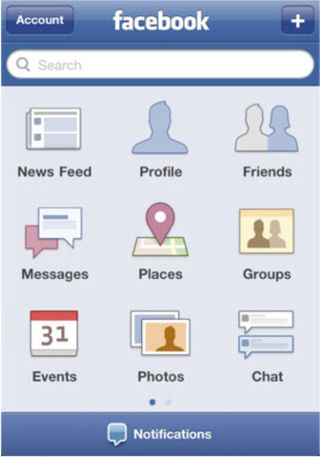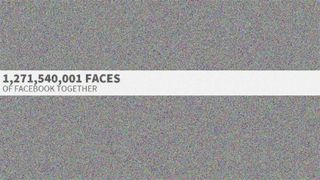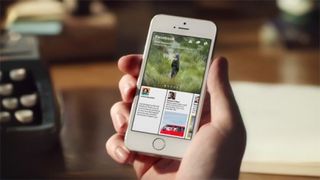Facebook at 10: How it took over the world one 'Like' at a time
Mark's World: You'll laugh, you'll cry, you'll hurl
Remember when the Terms of Service change in 2009 attempted to assert ownership over anything we posted to the site? How about in 2012 when private messages from two years earlier started randomly appearing on people's timelines as Wall posts? That was awkward. There was also the time when it removed the right for users to have a vote on important policy changes.
More recently the company removed the ability for users to hide their Timeline profile from searches on the site. Even today, Facebook faces a class action lawsuit alleges it intercepts private messages containing URLs to mine for data and profile its users. The issues are ever-present and users must be constantly on their guard in order to keep there privacy safeguarded from quiet policy changes.

Facebook has also dealt with its fair share of user revolts when changes are made. When it launched a big "streams" home page redesign in a year in 2009. 2 million users campaigned for the return of the "old Facebook," while in an internal email the cocksure young CEO told colleagues that companies who listened to their customers were "stupid."
Of course, Facebook certainly hasn't gotten everything right in it's quest to conquer the world, but the controversies haven't been nearly enough to perturb the 1.23 billion members.
It's easy to forget that the cocksure CEO Zuckerberg was just a 19-year-old kid when the Facebook arrived on the scene at Harvard.
The social network's young team has learned on the job, grown up together, and naturally mistakes have come with those growing pains over the last decade.
2008-2009
Get daily insight, inspiration and deals in your inbox
Get the hottest deals available in your inbox plus news, reviews, opinion, analysis and more from the TechRadar team.
April 2008:
Launch of Facebook Chat
July 2008:
iPhone app launches
Feb 2009:
Introduction of the Like button
It's attempt to take over Android phones through Facebook Home has been a disaster. It's Camera app, developed to rival Instagram, was being developed as the company finalised negotiations to buy the filter-friendly app, but in the main Facebook has gotten most things right, even if users love to complain when changes are made.
One billion served, but will the good times last?
In Facebook's 10 years in our lives, no period will go down as more important than 2012. The site passed 1 billion users (which is about 1 in 7 people on earth), it also paid a billion dollars for Instagram its first gigantic acquisition, while CEO Mark Zuckerberg became a certified billionaire at 28 when they company launched its IPO. Not a bad year eh?

Indeed, despite the near-constant bad press it receives, the reports of widespread Facebook fatigue and the emergence of sites and apps offering a different, less intense approach, nothing appears able halt the Facebook juggernaut. Plenty consider changing their 'relationship status' with Facebook, but too few actually pull the trigger through fear of falling out of the social loop.
Part of our inability to remove this often-guilty pleasure from our every day life has been Facebook's seamless transition from a desktop to a mobile-focused platform (half of the company's ad revenue now comes from mobile, on any given day, 48% of all users are accessing through mobile-only.) Over 100 million people a month use "Facebook for every phone," while 85 per cent of smartphone owners use a dedicated Facebook app. As a result, it and the temptations to check in and upload photos are with us everywhere we go.
2011-2012
Sept 2011:
Facebook Timeline launched
April 2012:
Facebook buys Instagram
May 2012:
Facebook announces its IPO
Despite these record numbers, soaring stock prices (following the poor handling of the floatation), a recent Princeton University study predicted that Facebook had already seen its best days, claiming that 80% of its current user base will have left for pastures new by 2017.

Another study in Europe already claimed Facebook is "dead and buried" for among the teen demographic who've already moved onto Snapchat and other alternatives where parents aren't embarrassing them.
Can the next decade possibly be as fruitful for Facebook as the first? Or will the natural order of things eventually see it do a MySpace as Princeton (probably out of jealousy!) has suggested.
While it's difficult to predict a year ahead in this industry let alone 10, those Facebook naysayers are probably wide of the mark. MySpace's problem was that it stood still, but Facebook isn't. "Move fast and break things," the company's informal motto, still holds true.
Its Graph Search tool, still in its infancy could soon become "the social Google," while new innovations like its beautiful new Paper app, a completely new approach to its mobile offering that focuses the users experience on "stories," can nullify apps like Flipboard and Pocket pose to Facebook's necessity.
2012-2013
Oct 2012:
Facebook reaches 1 billion users
July 2013:
100 million monthly users of Facebook on a phone
Aug 2013:
Facebook announces Internet.org
Meanwhile, Facebook Connect and integration with dominant streaming platforms like Netflix and Spotify, and the possibility that emerging, rival start-ups will be acquired added to the fold means it'll be damn difficult to usurp.

It's difficult to imagine Facebook taking its eye off the prize, even if the shareholders it now answers to would allow it. The core team, including Zuckerberg, is still young enough and hungry enough to push on, while it continues to have no problem attracting Silicon Valley's top talent.
With the structure in place and great new products still emerging from Palo Alto, Facebook's future looks in safe hands.
A technology journalist, writer and videographer of many magazines and websites including T3, Gadget Magazine and TechRadar.com. He specializes in applications for smartphones, tablets and handheld devices, with bylines also at The Guardian, WIRED, Trusted Reviews and Wareable. Chris is also the podcast host for The Liverpool Way. As well as tech and football, Chris is a pop-punk fan and enjoys the art of wrasslin'.
Most Popular



